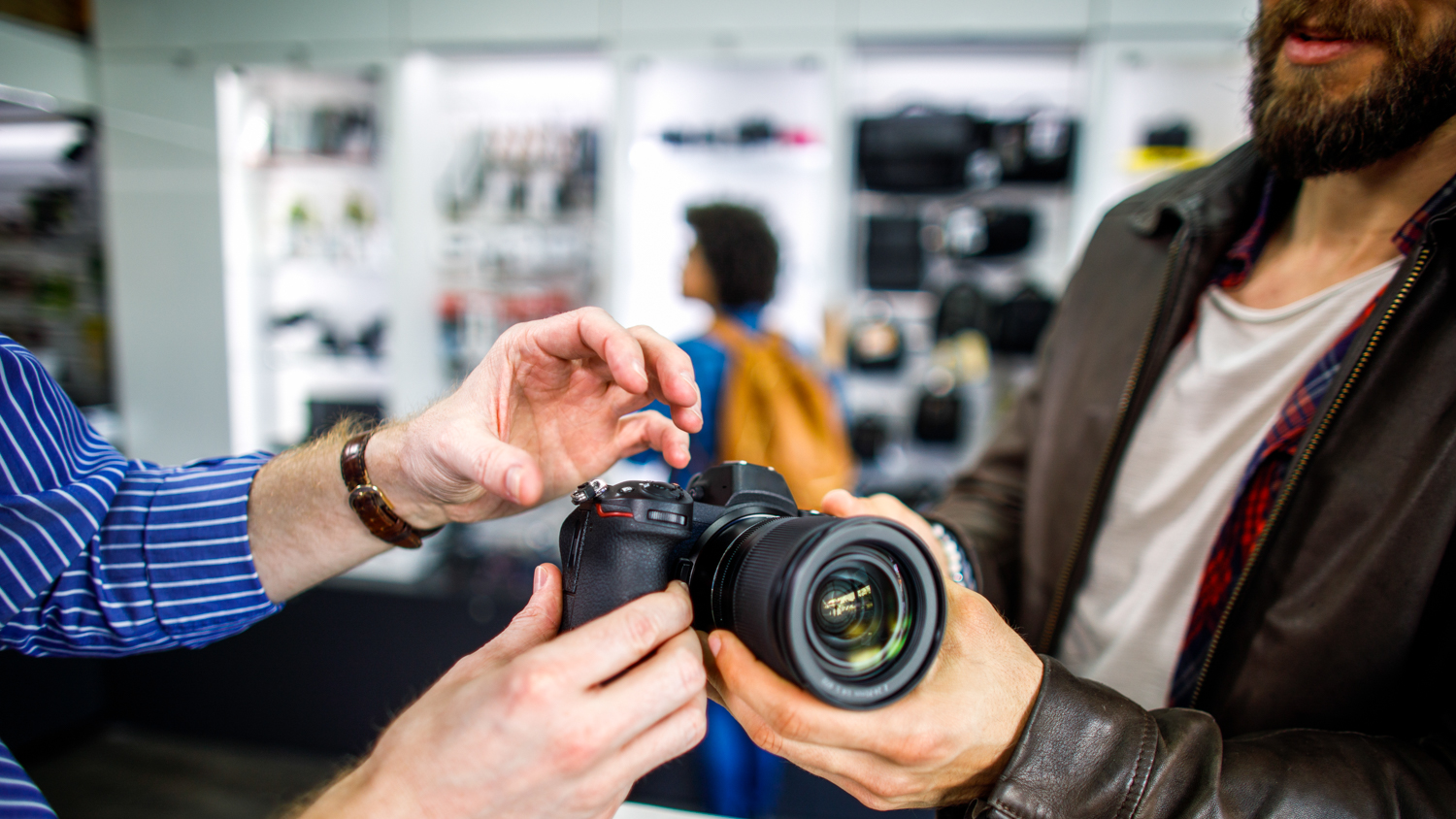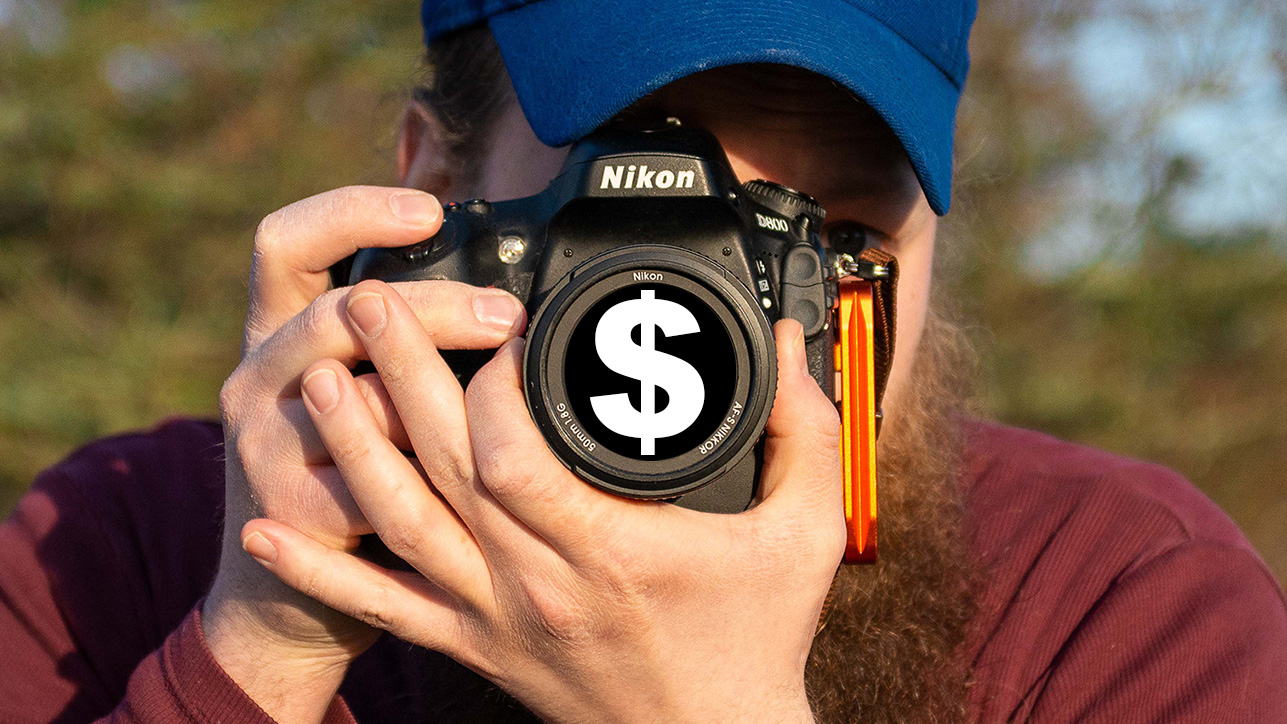What Monty Python taught me about the art of haggling over a price of a camera
Although Monty Python may have made fun of haggling in the movie, “The Life of Brian,” you should attempt to use haggling whenever you buy camera or tech gear.

Back in 1979, when the legendary British comedy troupe Monty Python released one of its last movies, “The Life of Brian,” they included a wonderfully silly scene in which the main character, Brian (played by Graham Chapman), is forced into haggling by Harry the Haggler, a local merchant (played by Eric Idle). But while this humorous skit is brilliantly farcical and funny, the ability to haggle can save you serious cash when you’re looking to buy a camera, lens, camera accessory, or any kind of tech gear you need.
What exactly is haggling? It’s essentially the ability to negotiate with a vendor, such as a salesperson in your local camera store or with someone online, in order to establish a discount for the stated price of a particular good or service. It can also be the ability to negotiate a better deal on the camera gear you're buying, which could include discounts on accessories, free shipping, or perhaps an extended warranty.
One tip that might be helpful to some, particularly if you’re like me and you don’t like to argue: If you don’t like the idea of haggling because you equate it with something confrontational, it’s important to know that you don’t necessarily have to behave aggressively to haggle. You actually have a range of options to try, from gentle persuasion to strong-arming.

What can be helpful to know, though, is that being polite is harder to resist than tough talk. As the old expression goes, “You attract more flies with honey than vinegar.” For instance, you can try gently persuasion with your local camera-store vendor by saying you’ve always been a loyal customer but you’ve seen the camera or item you want to buy for less elsewhere. You could then let them know that you’d really like to buy locally from the local camera store, if they’re willing to work with you on the price. Also, don’t act as if you’re entitled to a discount, be respectful, and don’t make demands.
And if that method doesn’t work, you could be more direct and say something like, “Best Buy charges a lot less for this camera. I’ll buy it from them if you won’t meet their price.”
Here’s are some other ideas to consider when you’re attempting to haggle:
What’s the best place to haggle?
Although in years past, independent camera and consumer electronic stores were great places to haggle since they weren’t tied to corporate policies on pricing. However, big-box retailers now have price-matching policies and, in some cases, they’ll match online competitors, like Amazon, Target, or Walmart. Plus, there aren’t as many small camera stores as there used to be.
What’s the best time to haggle?
While it might be hard to determine if there’s a right time to buy camera gear online, there are better times to buy a camera or lens at a brick-and-mortar store: To time it right, show up at the camera store early in the morning or later in the day. That’s when sales staff aren’t generally as busy. Two other timing tips is to negotiate with someone who has the authority to do so, and haggle quietly, perhaps in a part of the store where there aren’t other customers.
Be prepared. Do your research
In order to successfully haggle, you’ll want to decide what’s a fair price for the tech gear you want to buy. So, research the cost of that product and use it to determine what you’re willing to pay. A helpful tip is to print out or take screen shots of website pages. You might also get quotes from competitors (but make sure they’re in writing and print those out, too). Once you do that, contact the store to confirm that it will match the lowest price you’ve found. If you can’t get a better price, you could try asking them about free shipping or delivery.
Know when to ask questions and when to keep quiet
One successful haggling technique is to ask open-ended questions. Tell them you want to buy the pricier 35mm f/1.4 mirrorless lens but can only afford the budget 35mm f/1.8 lens. You then inquire if there’s any way they can help you. But it’s also important to then keep quiet! That’s because silence creates awkwardness, which can really benefit you. So, once you’ve made your offer, remain poker-faced. Let the seller consider your offer. During that quiet awkwardness, he or she might wonder if they’ve offended you and make a counteroffer.
Study your salesperson and show your knowledge.
Another helpful technique when haggling is to observe the seller. Is he or she anxious? There’s a lot of reasons a salesperson might be anxious—perhaps they need to meet a quota. Or maybe the store has lots of older camera models but wants to desperately sell new ones. Additionally, don’t be shy about what you know about camera and photography gear. If you know a lot about a particular type of camera or camera brand, share your expertise with the seller. You’ll come across as a qualified buyer.
Get the Digital Camera World Newsletter
The best camera deals, reviews, product advice, and unmissable photography news, direct to your inbox!
Terry Sullivan has tested and reported on many different types of consumer electronics and technology services, including cameras, action cams, mobile devices, streaming music services, wireless speakers, headphones, smart-home devices, and mobile apps. He has also written extensively on various trends in the worlds of technology, multimedia, and the arts. For more than 10 years, his articles and blog posts have appeared in a variety of publications and websites, including The New York Times, Consumer Reports, PCMag, Worth magazine, Popular Science, Tom’s Guide, and Artnews.
He has produced many articles and has appeared on TV to discuss a variety of topics, including the best cameras and devices to buy during the holidays, how photographers and content creators can get the most out of their point-and-shoots or phones, and how consumers can be creative when shooting a photograph, producing a video, or recording a song on a phone. He may also have the dubious achievement of being the first person (or one of the first) to create a music video entirely on an iPhone, created from media (the music itself, photos, digital art and video clips) produced on the device itself. Additionally, he is a musician, photographer, artist, and teacher.
You must confirm your public display name before commenting
Please logout and then login again, you will then be prompted to enter your display name.

